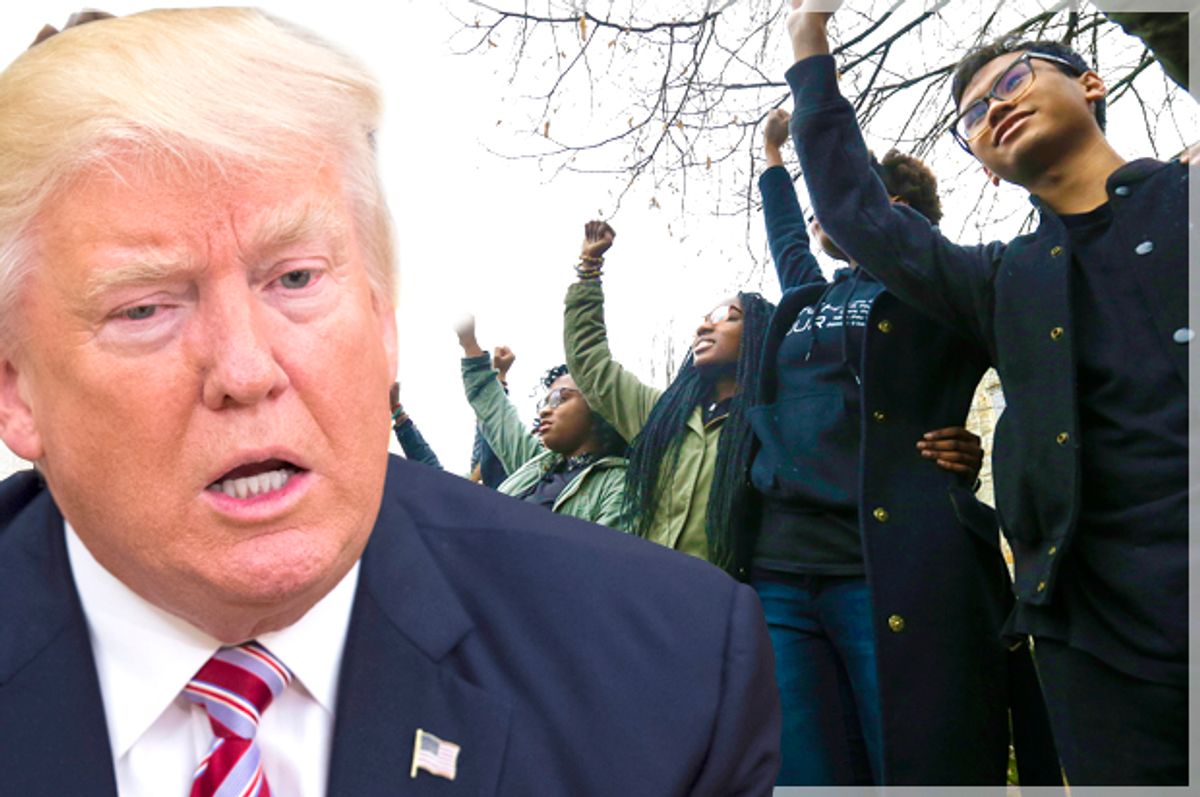Has America hit peak anti-intellectualism?
Aside from the election of Donald Trump, a businessman born into wealth whose only notable expertise is in reality television, there is now more evidence that the right-wing’s long game of denigrating U.S. institutions to reshape political discourse is succeeding. A new Pew Research Center poll released on Monday revealed that there is one U.S. institution perceived through a larger partisan divide than even the media: It's college.
For the first time, a majority of Republicans think that colleges and universities have a negative impact on the country. Fifty-eight percent say that colleges "are having a negative effect on the way things are going in the country," according to Pew. In other words, the Wall Street banks are more popular with Republican voters than Stanford, Harvard or the University of Akron.
Just two years ago, a majority of Republicans, 54 percent, rated universities' effect as positive. As Pew noted, “this shift in opinion has occurred across most demographic and ideological groups within the GOP,” but in particular the poll found that positive views of colleges among Republicans under the age of 50 sunk by 21 percentage points from 2015 to 2017. While Republican views of colleges and universities remained largely the same throughout much of the Obama administration, 65 percent of self-identified conservatives now say that colleges and universities have a negative impact on the country. Positive views of colleges dropped even among Republicans who hold a college or graduate degree, declining by 11 percentage points during the last two years.
Democrats and independents who lean Democrat, on the other hand, continue to hold a positive attitude toward such institutions, with 72 percent saying they approve of higher education.
Republican politicians in recent years have pushed back on the four-year degree, building upon their long-hyped attack on institutes of higher education as bastions of liberal indoctrination.
Last month, Sen. Chuck Grassley, R-Iowa, chair of the Senate Judiciary Committee, held a hearing titled “Free Speech 101: The Assault on the First Amendment on College Campuses.” The Wisconsin State Assembly passed a bill last month allowing college administrators to expel students for “disrupting” college speakers.
It’s likely no coincidence that just as conservatives decry the scourge of "political correctness" on liberal arts campuses, their campaign to undermine the institutions that defend a growing diversity of voices among students and faculty is bearing fruit. Arizona Republicans recently threatened to cut funding by 10 percent from public institutions that offer courses and events that are “designed primarily for pupils of a particular ethnic group” or advocate “solidarity” based on ethnicity, race, religion or gender.
Donald Trump’s threats to defund the University of California at Berkeley following a February melee in protest of right-wing provocateur Milo Yiannopoulos’ scheduled appearance harken back to Ronald Reagan’s 1966 campaign for governor of California, during which he pledged “to clean up the mess at Berkeley” caused by “a small minority of hippies, radicals and filthy speech advocates.” The right has long decried the ivory towers of academia, but now that those ivory towers are increasingly filled with members of marginalized communities, such attacks are beginning to resonate with average Republicans.
Between Election Day last November and April 2017, the Southern Poverty Law Center (SPLC) has documented at least 330 incidents of bias on university campuses. More than 135 incidents since the start of the 2016 academic school year, the SPLC reports, have involved recruitment efforts by white supremacists.



Shares